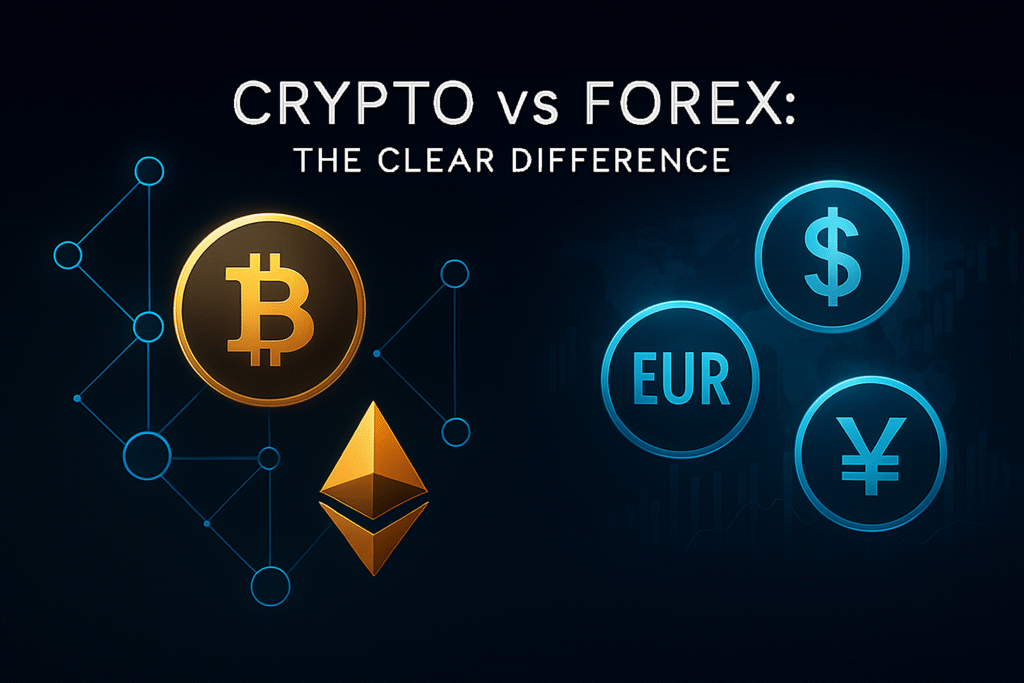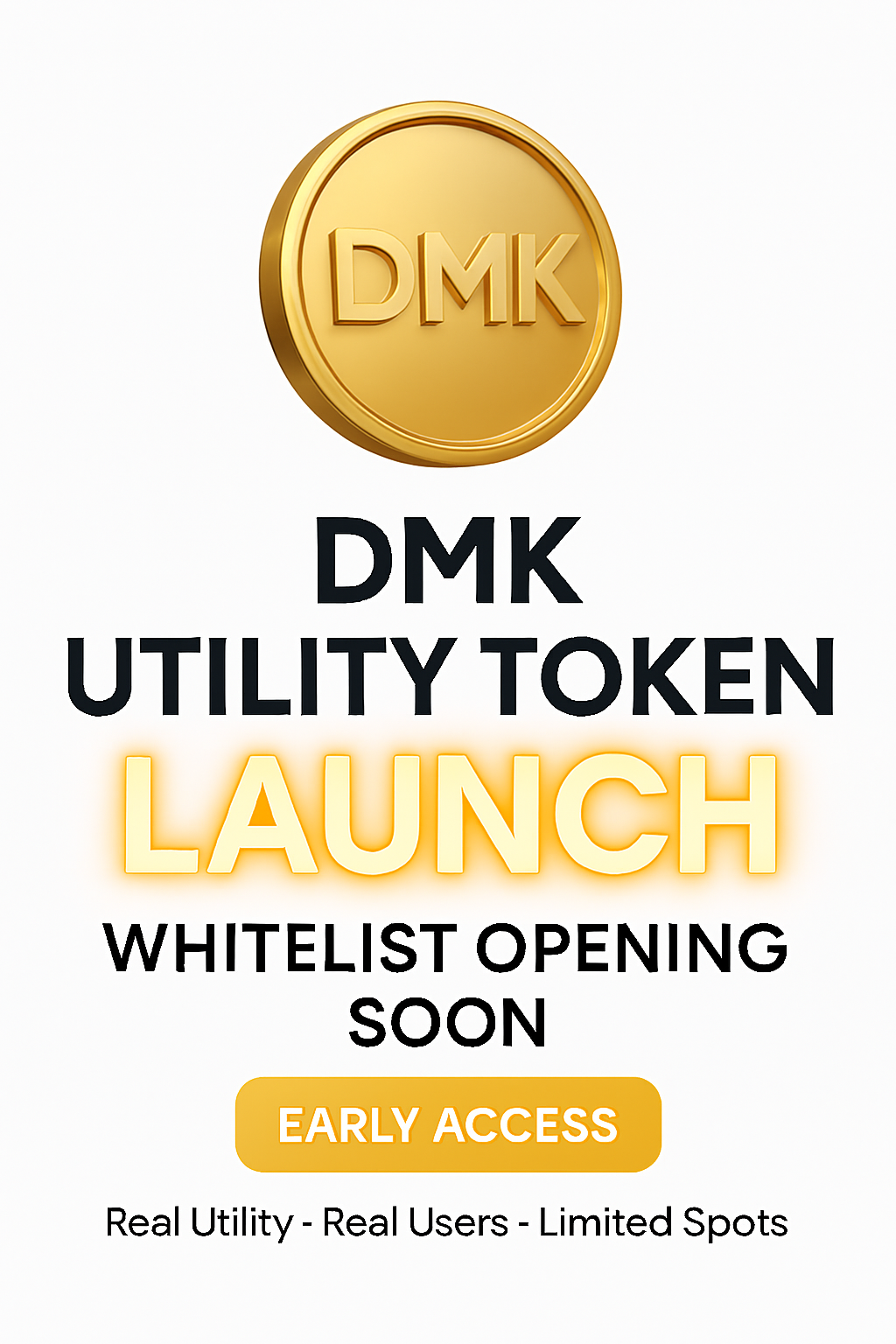Crypto vs Forex: The Clear Difference You Need to Know

Let’s be honest, if you’ve ever tried explaining crypto to your uncle who trades Forex, you’ve probably ended up in an argument. Both markets involve charts, prices, and a lot of jargon, but that’s pretty much where the similarities end.
Crypto and Forex are like cousins who share a last name (money) but live completely different lives. One loves decentralization and chaos; the other prefers regulation and coffee with central banks.
Let’s break it down.
⸻
1. The Basics: What Are We Even Trading?
• Forex (Foreign Exchange): You’re trading fiat currencies like USD, EUR, GBP, or JPY. These are government-issued and influenced by economic policies, inflation rates, and global trade.
• Crypto (Cryptocurrency): You’re trading digital assets such as Bitcoin, Ethereum, or Solana. No government prints them, they exist on the blockchain, powered by technology, code, and a little bit of faith in the internet.
Think of Forex as traditional finance with a tie, and crypto as finance with sneakers and an attitude.
⸻
2. Market Hours: The Sleep Difference
• Forex: Trades 24 hours, five days a week. Once Friday closes, the market sleeps.
• Crypto: Never sleeps. It runs 24/7, including Christmas morning. Price moves while you’re asleep, at work, or even on vacation.
Crypto is like that friend who texts you at 2 a.m. saying, “Bro, Bitcoin just dumped!”
⸻
3. Volatility: The Drama Level
• Forex: Typically, stable daily movements are often under 1%. You can predict trends with technical analysis and fundamentals.
• Crypto: Pure adrenaline. Prices can jump 10% in an hour and fall twice as fast. High risk, high reward.
If Forex is a calm business meeting, crypto is a live concert in the middle of a thunderstorm.
⸻
4. Regulation: Who’s Watching?
• Forex: Highly regulated. Central banks, governments, and brokers follow strict compliance.
• Crypto: Still a work in progress. Some countries embrace it, others ban it, and most are cautiously observing.
Crypto is the “wild west” of finance — innovative but unpredictable.
⸻
5. Leverage: Borrowing Power
• Forex: Known for high leverage options (up to 1:500). That means small deposits can control big trades, but losses scale up too.
• Crypto: Also offers leverage (especially on exchanges like Binance, OKX, or Bybit), but volatility makes it riskier. Use it wisely or the liquidation bot will find you fast.
⸻
6. Ownership: Do You Actually Own It?
• Forex: You’re not owning currencies; you’re just speculating on their exchange rates.
• Crypto: True ownership. Transfer coins to your wallet, keep your private keys, and you literally own the asset.
Crypto gives you financial-sovereignty freedom with responsibility.
⸻
7. Accessibility: Who Can Join the Game?
• Forex: Requires a licensed broker and sometimes higher entry requirements.
• Crypto: Anyone with a smartphone and internet connection can start trading within minutes. No middlemen, no permission needed.
Crypto is open finance. Forex is permissioned finance.
⸻
8. Purpose: Why They Exist
• Forex: Maintains global currency exchange, enabling international trade and monetary stability.
• Crypto: Aims to redefine money, making it borderless, transparent, and decentralized.
Forex keeps the current system alive. Crypto wants to upgrade it.
⸻
Final Thoughts
Both crypto and forex offer unique opportunities, but they cater to different mindsets.
Forex is your calm, disciplined banker uncle, reliable and predictable.
Crypto is your rebellious younger cousin, unpredictable, innovative, and always pushing boundaries.
Whether you love the structure of Forex or the freedom of crypto depends on your risk tolerance, goals, and trading personality.
Just remember: trade smart, manage risk, and keep learning, because in both worlds, knowledge pays the best interest.

 Bitcoin
Bitcoin  Ethereum
Ethereum  Tether
Tether  XRP
XRP  USDC
USDC  Solana
Solana  JUSD
JUSD  TRON
TRON  Lido Staked Ether
Lido Staked Ether 

Comments
You must be logged in to comment. Log in or create an account.